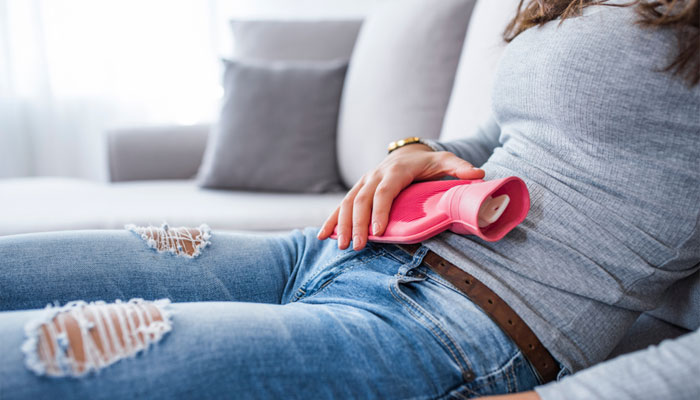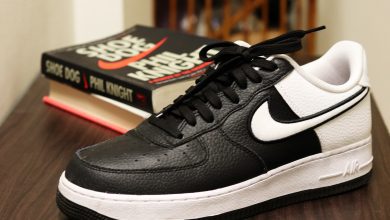How to Reduce Period Pain

Period pain and cramps are a common part of our monthly cycle for many of us, varying from mild to severe. While others, there are the fortunate few who experience neither.
A female’s periods can also vary, which means some months may have discomfort and others don’t. Knowing our menstrual cycle might help us determine if we should grab a hot water bottle or seek medical attention.
Furthermore, this blog will also help you understand more about period pain, including what causes it and Tips to reduce period pain.
What causes period pain?
Several other conditions can also cause cramping. The treatment of these illnesses may assist in easing the symptoms. Among these conditions are:
- Endometriosis – The condition occurs when the lining of the uterus develops outside of the uterus, such as in the fallopian tubes, and can cause more persistent discomfort than normal period cramps.
- Uterine fibroids – These are non-cancerous growths on the uterine wall that can occasionally produce pain in the afflicted area. Adenomyosis occurs when the uterine lining begins to develop into the uterine walls.
- Pelvic inflammatory disease – This is a bacterial infection of a woman’s reproductive organs that is usually transmitted through sex.
- Cervical stenosis – The condition occurs when the aperture of the cervix narrows and inhibits the passage of menstrual blood, resulting in a painful rise in uterine pressure.
How can I reduce menstruation pain?
You may try several things from month to month to relieve period pains. So, if your period pain is terrible, below are a few natural ways & Tips to reduce period pain:
- Apply heat – Because heat helps relax the muscles that contribute to cramping, applying heat to your belly or back can help ease discomfort. Using a heating pad or bathing in a warm bath are fantastic methods to relieve period discomfort. These heating patches are an effective option and consider one of the best tips to reduce period pain.
- Light exercise – Physical activity and aerobic exercise increase circulation and aid in releasing feel-good endorphins. Exercise helps make you feel better and produces natural endorphins, which can help you fight pain by interacting with neuron receptors in your brain. As a result, schedule time for 30 minutes of mild activity, such as light jogging or dancing to your favorite tunes.
- Consume a healthy diet – Eating a balanced diet may be another strategy to alleviate period pain since specific vitamins and minerals have been linked to cramping reduction.
- There is evidence that vitamin B1, often known as thiamin, and magnesium may help relieve period cramps. These are two vitamins and minerals that most adults obtain from a well-balanced diet.
- Apply Essential Oils – To relieve menstruation cramps, combine essential oils such as lavender or sage with jojoba oil and rub them on your abdomen. To regulate your hormones during your period, apply a few Clary Sage essential oil drops to your pulse points.
- Have an orgasm – The whole body is engaged in a vaginal orgasm, including the spinal cord, which stimulates the release of neurotransmitters. Endorphins and oxytocin are released, which can alleviate period pains.
- Drink Herbal Tea – Instead of coffee or wine, try a cup of herbal tea to alleviate period cramps. Chamomile, Peppermint, and Ginger are some herbal drinks that can aid period discomfort and menstrual irregularities.
- Over counter medicines – Over-the-counter pain relievers such as paracetamol or prescription pain relievers such as ibuprofen and codeine are efficient in relieving headaches, stomach cramps, and back discomfort during menstruation safe for short-term use.
Food that helps relieve period pain –
Certain dietary modifications or choices can also help reduce period cramps and make this awful time of the month less painful.
- Fennel seeds –This is an effective ingredient that relieves cramps and pain associated with premenstrual syndrome and menstruation by restoring the balance of female hormones. It also acts as a natural diuretic and digestive aid, reducing water retention and bloating.
- Flaxseeds – This includes omega 3-fatty acids, which have been shown to aid with PMS symptoms such as sadness, anxiety, bloating, breast tenderness, and headaches. Furthermore, they contain lignans, which inhibit excess estrogen and regulate hormone metabolism.
- Spinach – Leafy greens are a superfood that you should eat. Spinach is a magnesium powerhouse. One green cup gives 40% of your daily value, so try it in sandwiches and salads. To help relieve PMS symptoms, prepare a hot side of wilted spinach. It not only aids to reduce cramps but is also high in calcium.
- Bananas – This fruit helps you stay calm by reducing water retention and bloating. Bananas are rich in vitamin B6, magnesium, and potassium, making them an ideal snack for unpleasant menstruation days.
When should you consult a doctor about period pain?
Many females can control period pain at home by using some natural approaches. However, if it is interfering with your daily life or preventing you from doing the activities you enjoy, it is time to consult your doctor.
You should consult your doctor in particular if you experience period discomfort and:
- The pain is so terrible that it interferes with your daily life.
- Pain relievers or over the counter medicines aren’t working.
- You get spotting between cycles or after intercourse.
- begin to have irregular periods, or your periods last longer than normal
- You find sex to be painful.
- have noticed a thick or odors vaginal discharge
- You have an IUD.
- Got a fever.
If your discomfort is severe or you have a positive pregnancy test, you should go to the emergency room or contact an ambulance. You may have an ectopic pregnancy.
Conclusion –
When you’re on your period, eating healthful, mildly flavored foods is the healthiest method to relieve cramps and bloating. Eat nutritious meals regularly throughout the day to keep yourself full and cramp-free. Additionally, drink plenty of water to avoid dehydration and worsening cramping. Along with eating foods that assist with period cramps, doing simple workouts that focus on your core and lower half of your body, such as yoga and walking, can help make your periods less painful. If above mentioned foods & Tips to reduce period pain are not relieving your period pain, you can consult a Gynecologist in Delhi for quick help.
Read More –
Warning Signs of Asthma in Children
Maximum Stitches in Normal Delivery
Ovarian Cyst: Is Pregnancy Affected by it?
Cloudnine Hospital Gurgaon For High-Risk Pregnancy in Gurgaon
Best treatment options for Head and Neck Cancer at Kokilaben Hospital





